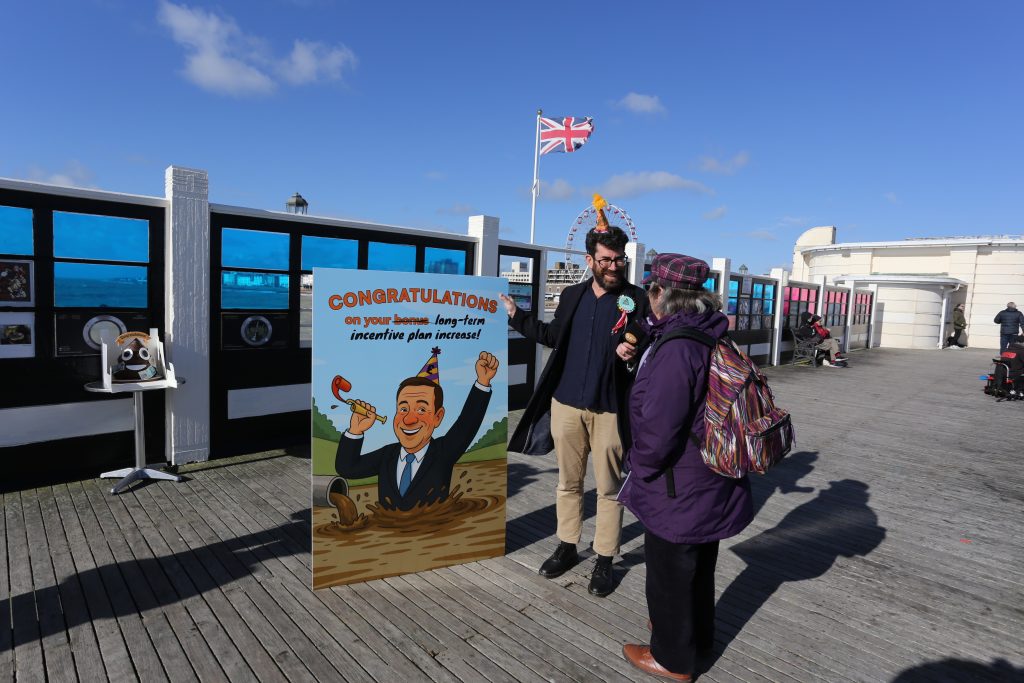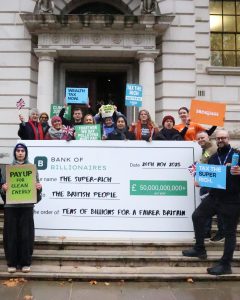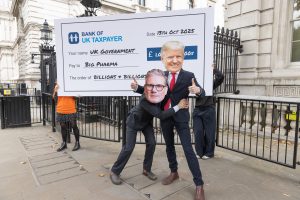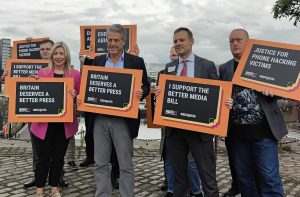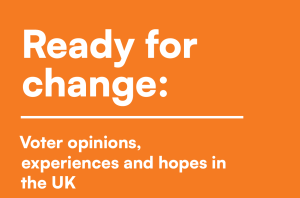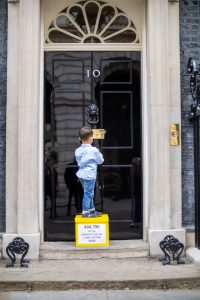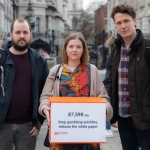
Oct 16th, 2013
Gagging Law: Briefing for Public Meetings
By 38 Degrees team
Thanks!
Firstly, thanks so much for attending the public meeting on the gagging law. By coming along to the event, you’re helping to hold your MP to account, as well as keeping the pressure on for the next stage of the campaign. A good turnout for these public meetings will mean that MPs will both lobby the House of Lords for further changes to the bill, and consider voting through amendments when the bill returns to the House of Commons.
Below is some further reading that aims to ensure that you are up-to-date with what has been happening with the law so far, and to provide you with the knowledge you need to question your MP at the public meeting. Please do remember, though, you don’t need to be an expert! Your MP represents you, and if you are concerned about the bill, you are perfectly within your rights to question them.
Here’s an article David Babbs’ wrote for the blog Lib dem Voice:
Lobbying Bill – let’s hope the House of Lords sorts it out…
It was heartening to see an increased number of Liberal Democrat MPs vote against the Lobbying Bill, or “gagging law”, this Wednesday. Thank you to Greg Mulholland, John Pugh, Alan Reid, Adrian Sanders, Mark Williams and Roger Williams. Slightly more muted, but still genuine, thanks to Andrew George and Martin Horwood – who didn’t vote against but did vote in support of amendments which would have alleviated some of the law’s most sinister aspects.
I’m sure that these MPs’ local voluntary sector, and many of their local voters, noticed and approved. 38 Degrees members in their constituencies certainly did. They tell me they are pleased that their MPs really interrogated the issue and were willing to displease the whips to do the right thing.
But what about the rest of the Lib Dem MPs? There were a few mysterious and perhaps telling absences, but the majority of Lib Dem MPs trooped loyally through in support of the government. And of course Tom Brake MP led the government charge. Overall, this week’s events in Parliament did nothing to dispel the widespread perception that the gagging law is being actively driven by Lib Dems.
Why is this? Lib Dems give me divergent responses to the suggestion that the gagging law is a Lib Dem initiative. Most rank-and-file party members and supporters tend to assume it’s a Conservative bill – they point out similarities with the Health and Social Care Bill (bad drafting, no consultation, obfuscation over amendments) as classic hallmarks of Andrew Lansley. Amongst those closer to the party leadership, the tone is more bullish and the attitude towards the bill’s civil society critics actively hostile. Those that fall somewhere between the two camps tend to say that the Bill is “well-intentioned” but has “unintended consequences” which need fixing.
When senior Lib Dems are in bullish, “this is our Bill and we’re proud of it” mode, they make three claims:
-
it’s about stopping US style “super PACs” from distorting politics in the UK
-
it’s about bringing greater transparency to the democratic process
-
the concerns of pretty much the entire voluntary sector, and the legal advice produced by several different law firms, are totally without foundation
Stopping “super PACs” and promoting transparency are aims which most of the voluntary sector would probably sign up to. 38 Degrees members certainly do.
But this bill does not take “big money” out of politics. It constrains organisations like 38 Degrees, the Countryside Alliance, Friends of the Earth, the Royal British Legion, and Christian Aid – diverse groups fuelled by small donations from tens of thousands of members. On the other hand a multimillionaire like Lord Ashcroft or Lord Sainsbury can continue to make huge donations to political parties as much they like.
The Lib Dem leadership rejoinder to this is that at some point in the future, if party funding were sorted out, super PACS could become a problem. My back-of-an-envelope suggestion for future-proofing the UK system against this hypothetical problem would be to introduce some kind of donations cap on individual donations to third parties, for any activities which fall under regulation by the electoral commission. That would stop a millionaire setting up a front group to funnel huge amounts of cash. And it would set a helpful precedent for those of us who’d like to see such a cap brought in for political parties.
When I suggested this to Tom Brake a few weeks ago, his response was that “no one has suggested that before”. If he’d held any consultation before pushing through the gagging law, maybe someone would have! Maybe the donations cap for non-parties idea is flawed. But my broader point is that if the true intention is to ensure that non-parties don’t in the future become funnel for big donations, then let’s have a proper conversation about how we could best do that.
If the gagging law was withdrawn and proper process of consultation launched, the voluntary sector would eagerly participate in trying to improve the regulatory framework. The question of how best to prevent elections being distorted by “big money” funnelled through non-party groups, whilst safeguarding freedom of speech and ensuring a healthy role for civil society in the democratic process, is an interesting and important one. The risks of getting it wrong are particularly high at a time when formal party politics is in a dire state and so many look to independent, issue campaigns as their preferred means of engagement.
As for the bill being about transparency, there are bits of the bill which are about transparency, and they are not for the most part the bits which the voluntary sector is objecting to. The big exception to this is around thresholds. To impose the same reporting regime on large, national organisations like 38 Degrees and on tiny local campaign group turning over just over £5000 a year, is to risk swamping small organisations with red tape. 38 Degrees supports greater transparency: we already do much of what the bill would require voluntarily – check out our donations policy here. With proper consultation, and time to properly reflect, surely we could come up with a more gradated system which improves transparency without stifling small local groups?
It’s hard to know how to respond to Tom Brake’s assertion that the whole voluntary sector is just plain wrong in their analysis of what they Lobbying Bill will do. It risks descending into insults – he says we’re being “alarmist”, we tell him we don’t believe him. But we have made public the legal advice on which our analysis is based. Tom Brake is unable to do the same with the legal advice upon which he says his counter-analysis is based. Back in February 2003 many Lib Dem voice readers must have have stood in Hyde Park listening to Charles Kennedy express eloquent doubts as to the legality of invading Iraq. I’m sure they will sympathise with all of us who are reluctant to simply take a government Minister at his word about his secret legal advice
We now need to look to the House of Lords to fix this dangerous, desperately flawed bill. The timeframe the government is trying to impose on them risks making a hard task impossible. But the formation of a “Commission on Civil Society and Democracy”, chaired by the former Bishop of Oxford Richard Harries, should help. It is encouraging that Tom Brake has apparently agreed to appear before them and give evidence. Let’s hope that they are able to come up with some solid recommendations in the little time government is allowing, and that Tom Brake, or Andrew Lansley, or whoever is actually driving this law through, has the wisdom to listen to them.



